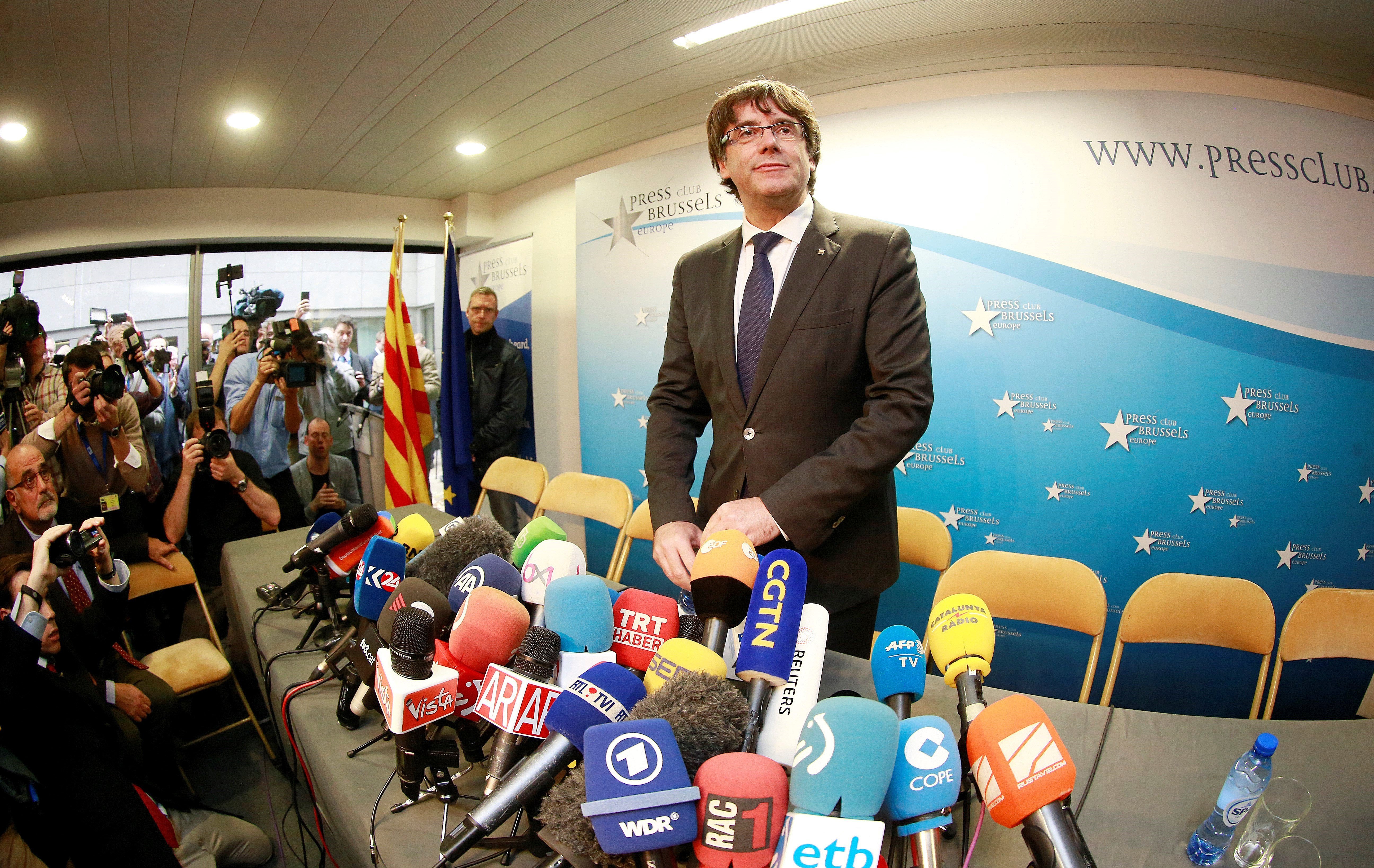A judge from Spain's National Audience Court, Carmen Lamela, could issue an arrest warrant for the Catalan president, Carles Puigdemont and the four ministers that have remained with him in Brussels: Toni Comín (Health), Meritxell Serret (Agriculture), Clara Ponsatí (Education) and Lluís Puig (Culture).
The Public Prosecutor has requested the warrants after today's statements by the ministers who did attend court, saying that "the summons for them to appear today to declare as suspects was a famous, publicly-known fact". In the motion, the prosecutors write of "repeated attempts to deliver the summons to their addresses, as well as repeated telephone calls which they have ignored".
The prosecutor makes a request for, firstly, a national and international alert and search order and, secondly, a European arrest warrant addressed to the Belgian authorities, saying that "the absent suspects are in or at least have travelled to Belgium".
Lawyers for the absent ministers asked for them to be able to declare via videocall from Belgium, a request refused by the public prosecutor who argued that "they haven't offered any details about their current location". They then asked for the measures described in the lawsuit presented Monday against the Catalan government for the declaration of the Catalan Parliament on Friday 27th October to be carried out. Those measures described in the earlier filing were immediate detention if the members of the government didn't present themselves at the National Audience to declare.
Of the 14 members of the government, only 9 have come to Madrid today. President Carles Puigdemont and 4 ministers have remained in Brussels where, on Monday, the gave a public press conference. Of the 7 ministers who had originally gone to Belgium, three have returned: Joaquim Forn (Interior), Meritxell Borràs (Governance) and Dolors Bassa (Work).
Carmen Lamela, the judge, now has to decide whether to issue the corresponding European Arrest Warrants (EAWs). If so, Belgian authorities will have to move to arrest Puigdemont and the ministers.
EAWs substitute earlier extradition procedures between EU member states with a streamlined system which first came into force in Spain and 7 other countries in 2004 after a 2002 decision.
The EAW system aims to simplify the procedures and documentation required for the process through the creation of a single document.

